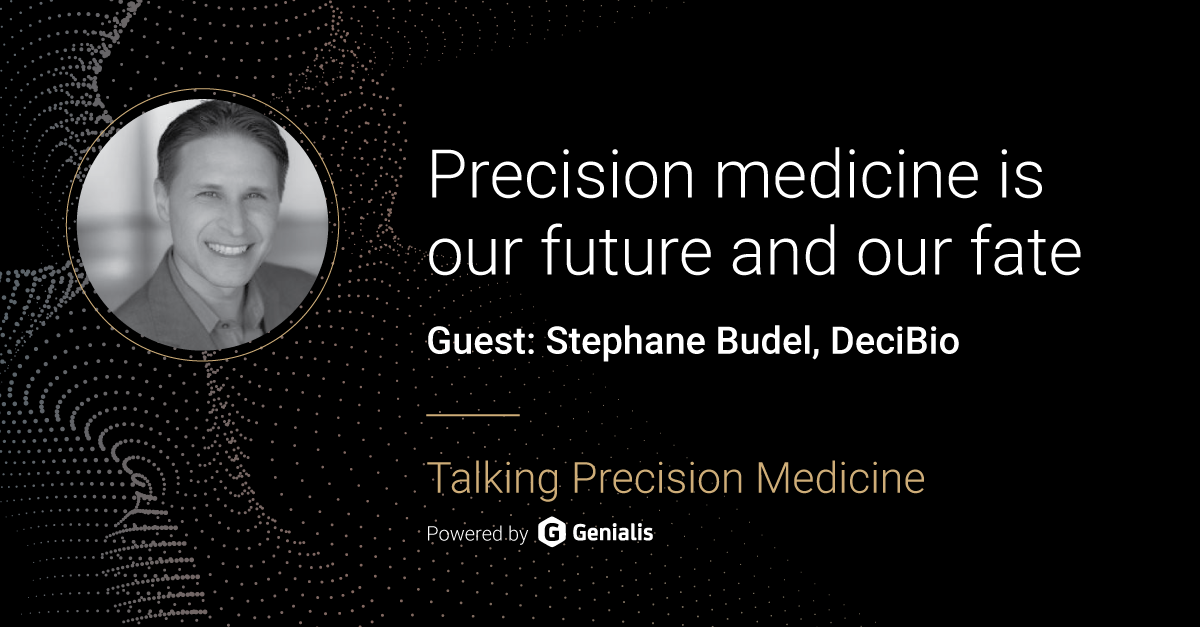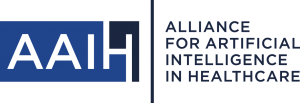Welcome to Talking Precision Medicine (TPM podcast) — the podcast in which we discuss the future of healthcare and health technology, and how advances in data and data science are fueling the next industrial revolution.
Stéphane Budel, founding partner at DeciBio, joins the Talking Precision Medicine Podcast to explore the future of the field. He unpacks how liquid biopsy, multi-omics, and AI are opening new doors for personalized care, why the diagnostics business model is holding innovation back, and what it will take to make complex tech usable for clinicians and patients alike.
Come on in and have a listen.
Episode highlights:
DeciBio’s mission and model
“DeciBio is a strategy consulting firm with a mission to accelerate the adoption of precision medicine. And we believe that the current healthcare system is largely a sick-care model and we’re passionate about shifting that to a more proactive personalized care model.”
- DeciBio operates as a hybrid consulting, data products, and venture investment firm, making it both an advisor and participant in the precision medicine ecosystem.
- DeciBio serves a wide range of clients, from early-stage startups to global leaders like Illumina, LabCorp, and AstraZeneca, supporting them across strategy, customer research, and go-to-market execution.
Stephane’s journey to DeciBio
“I started this initially as a placeholder, thinking, I’m going to do this for three to six months and then go get a job at Illumina… That was 2009. So it’s been a while.”
- Stephane started DeciBio in 2009 as a short-term freelance project after stints at L.E.K. Consulting and nearly joining Illumina—but the business quickly gained traction.
- What began as a placeholder grew into a leading precision medicine strategy firm, now with four offices and over 45 employees.
Precision medicine is still in its early innings
“In another one or two decades, we’re probably going to start to name precision medicine, just simply medicine. This idea that we will take any drugs in ways that are not somewhat tailored to our genetic makeup is not going to be making any sense.”
- Despite decades of progress, precision medicine is still in its early phase of adoption.
- Oncology remains the most mature space, due to the clear genomic basis of disease, urgency of treatment, and substantial pharma investment.
The broken diagnostic business model
“The business model is just fundamentally broken for diagnostic firms. And the space is becoming more and more uninvestable.”
- Diagnostic companies struggle to capture the value they create, as they are often upstream of the cost savings realized by other stakeholders.
- The current reimbursement model is cost-plus, rather than value-based, leaving innovators with thin margins and high risk.
- Stephane argues for a shift to value-based pricing, along with better economic studies and real-world evidence to demonstrate the true impact of diagnostics.
Early detection and liquid biopsy
- Early cancer detection is the “poster child” for precision medicine’s impact, with technologies like liquid biopsy leading the way.
- Liquid biopsy is not just for early detection but can track the entire patient journey — from initial screening to therapy selection to monitoring residual disease.
- Stephane highlights that liquid biopsy is a matrix, not a single test, with numerous use cases across cancer types and stages, offering massive potential for improving patient care.
The challenge of aligning stakeholders
“Everyone wants to avoid the trial and error treatment. So they align around the concept of value, even if the definition of value differs between the stakeholders.”
- Pharma, diagnostics, payers, providers, tech companies, and patients all play critical roles in precision medicine, but their incentives and timelines are often misaligned.
- Stephane compares the healthcare system to a messy, convoluted industry, similar to the music industry before streaming platforms like Spotify simplified access.
- The key to broader adoption is proving clear value to each stakeholder, especially payers and providers, through economic models, real-world data, and compelling case studies.
AI and the future of precision medicine
- Stephane is very optimistic about AI, especially its ability to help make sense of complex datasets like long-read sequencing and multi-omics.
- Technologies like spatial biology and multi-omics integration are becoming more powerful, but AI will be essential to distill these data into actionable insights.
- Ultimately, precision medicine will evolve into a more connected, patient-centric model, where data from wearables, digital tools, and even search engines will inform diagnosis and treatment in ways we can barely imagine today.
This has been Talking Precision Medicine. Please subscribe and share our podcast with your colleagues, leave a comment or review, and stay tuned for the next episode. Until then you can explore our TPM podcast archive and listen to interesting guests from our past conversations.




